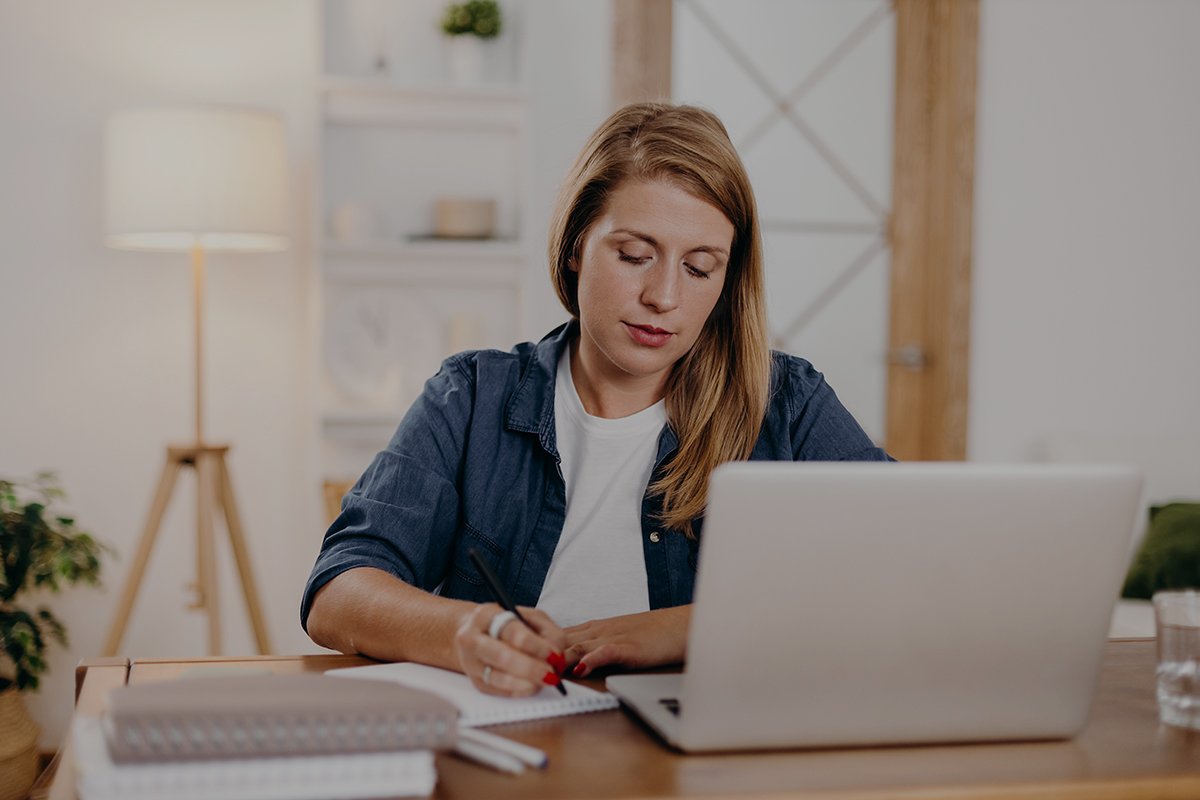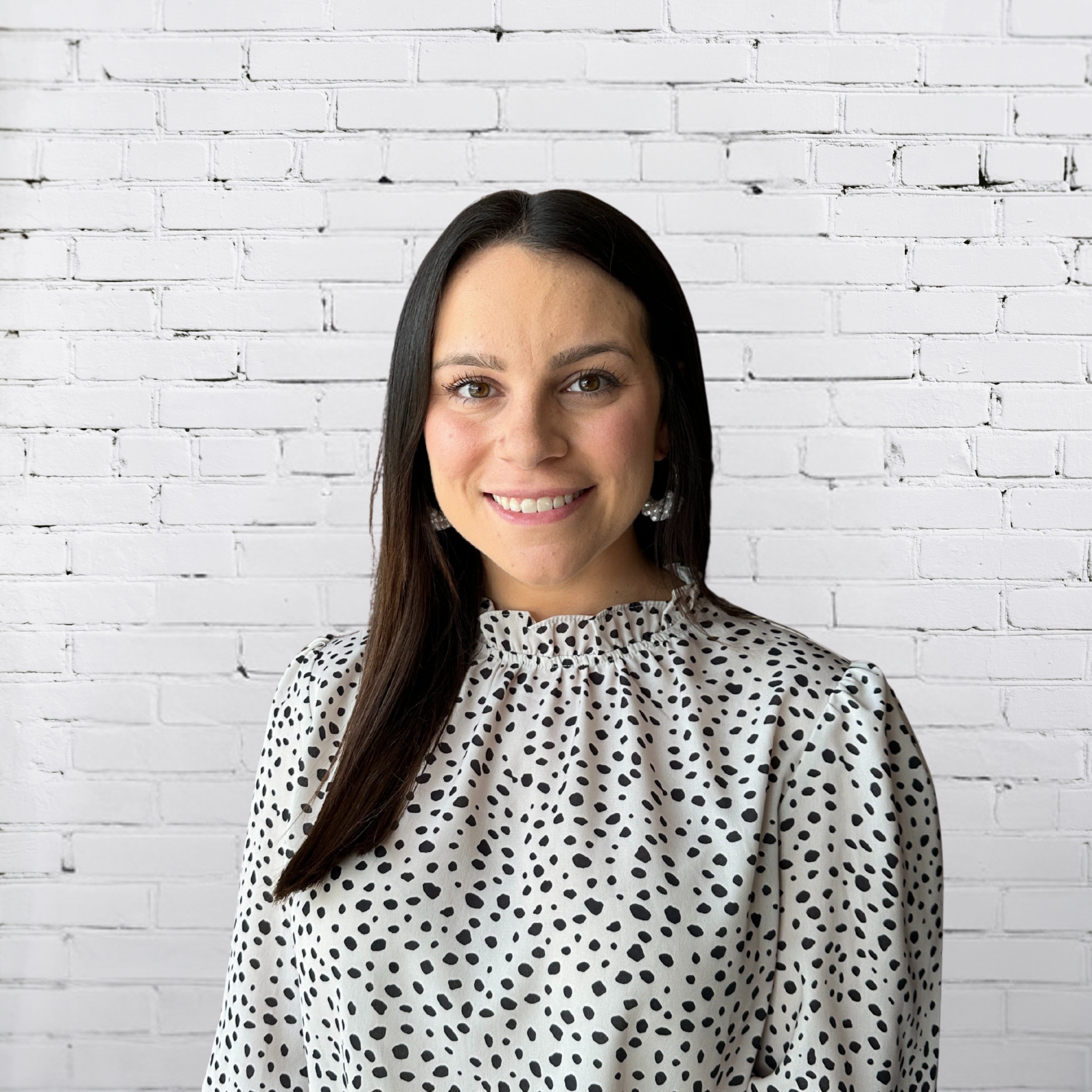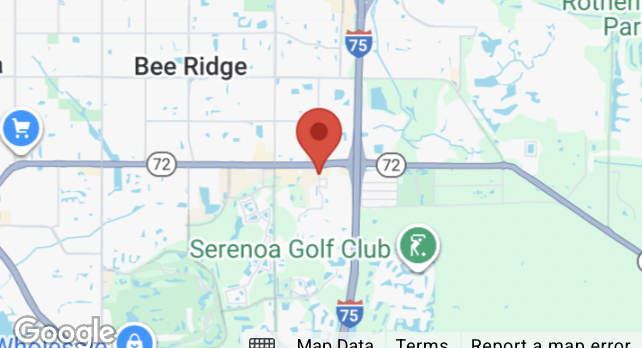Anxiety Therapy in Tampa, St. Petersburg & Sarasota
Specialized CBT, EMDR & Evidence-Based Anxiety Treatment
Anxiety doesn’t always look like panic, it often hides behind perfectionism, overthinking, and exhaustion. At It Begins Within, we help busy professionals, parents, and high-functioning adults in Tampa, St. Petersburg, and Sarasota break free from anxiety’s grip. Whether you’re battling chronic stress, intrusive thoughts, or burnout, our team provides evidence-based care that meets you where you are.
What Brings People to Anxiety Counseling in Tampa, St. Petersburg & Sarasota
If you find yourself struggling with anxiety, it may help to know you’re far from alone. Anxiety disorders impact over 40 million people in the U.S. every year. That doesn’t make what you’re feeling any less painful, but it does mean there’s absolutely proven approaches for healing.
In our offices, we often meet clients navigating both the reasons and seasons of anxiety. Sometimes it’s a recent breakup, parenting stress, or a demanding job. Other times, it’s tied to transitions like starting a career, entering parenthood or preparing for retirement. These moments can quietly build pressure until anxiety starts to take the driver’s seat.
Our role is to help you slow down, make sense of it, and find the path through it.
Anxiety Therapy That Works — Results From Our Clients in Tampa, St. Petersburg & Sarasota
Anxiety Disorders We Specialize in at It Begins Within
At It Begins Within, we treat a wide range of anxiety disorders. We provide specialized services tailored to meet each, along with each client’s unique needs. Whether you're dealing with persistent worry, overwhelming panic attacks, or anxiety related to social situations or trauma, our experienced therapists in Tampa and St. Petersburg are here to help.
Therapy for Generalized Anxiety Disorder (GAD)
Persistent worry, restlessness, and overthinking may be signs of Generalized Anxiety Disorder (GAD). We use evidence based approaches to help individuals heal including CBT, ACT, and mindfulness to help you manage symptoms and regain peace of mind.
Panic Attacks & Panic Disorder
Panic attacks can feel sudden, intense, and frightening—often showing up as a racing heart, shortness of breath, dizziness, shaking, chest tightness, or a sense that something terrible is about to happen. If these episodes are becoming frequent or causing you to avoid certain places or situations, you may be experiencing Panic Disorder.
Our therapists in Tampa, St. Petersburg, and Sarasota use evidence-based tools like CBT, exposure-based strategies, grounding techniques, and body-focused anxiety regulation to help you understand your panic cycle, regain control, and feel safe in your body again.
Social Anxiety
Social anxiety often shows up as intense self-consciousness, fear of judgment, avoidance of social situations, difficulty speaking up, or replaying conversations long after they’re over. Even highly successful professionals can struggle with feeling “on edge” in groups, meetings, or social events.
At IBWHC, we help you build confidence, challenge anxious thinking, strengthen communication skills, and feel more at ease in social situations. Therapy can help you reconnect with people without fear getting in the way.
Health & Illness Anxiety
Health anxiety can lead to constant worry about symptoms, frequent body-checking, reassurance seeking, or the fear that something is “seriously wrong” despite medical reassurance. These thoughts can take over your day and make it difficult to relax.
Our therapists use CBT, ACT, and mindfulness-based interventions to help you break the cycle of fear, reduce hypervigilance, and build trust in your body again. You’ll learn practical tools to calm your mind, challenge intrusive worries, and feel more grounded.
Trauma-linked Anxiety (PTSD, complex trauma)
Trauma-related anxiety may include hypervigilance, difficulty relaxing, nightmares, intrusive memories, emotional reactivity, or feeling “on alert” even in safe environments. Trauma can shape the nervous system, making it hard to feel calm or connected.
Our team specializes in trauma-informed approaches, including EMDR therapy, somatic strategies, CBT, and attachment-focused work. Whether you’re coping with a single event or long-term overwhelming experiences, therapy can help your mind and body feel safe again.
OCD & Intrusive Thoughts
OCD isn’t just about cleaning or checking—it's a cycle of intrusive, unwanted thoughts paired with compulsive behaviors meant to reduce anxiety. Many clients describe feeling “stuck,” ashamed of their thoughts, or exhausted by repetitive mental or physical rituals.
Our therapists provide evidence-based OCD treatment using ERP (Exposure and Response Prevention), CBT, and mindfulness techniques. We help you reduce compulsions, understand your thought patterns, and regain a sense of freedom in your day-to-day life.
Performance / Work Anxiety
Performance anxiety affects high-achieving professionals, leaders, athletes, and students who feel intense pressure to succeed. It may look like perfectionism, fear of failure, procrastination, overworking, burnout, or constant fear of not being “good enough.”
At IBWHC, we help you build emotional regulation skills, strengthen confidence, redefine success, and break patterns that keep you overwhelmed. Our Tampa, St. Petersburg, and Sarasota therapists specialize in helping professionals create healthier ways to perform at a high level—without sacrificing their well-being.
Treatment for Sleep Anxiety and Insomnia
Sleep anxiety and insomnia can create a vicious cycle, worry about not sleeping makes falling asleep harder, which increases anxiety about the next night. Whether you're lying awake with racing thoughts, waking repeatedly, or experiencing panic attacks at bedtime, chronic sleep disturbance affects work performance, emotional regulation, and relationships.
At It Begins Within, we address both the psychological patterns maintaining sleep disturbance and physiological factors contributing to wakefulness. Our therapists utilize Cognitive Behavioral Therapy for Insomnia (CBT-I), which has been proven more effective than medication for long-term resolution. CBT-I includes sleep restriction therapy, stimulus control, cognitive restructuring, and relaxation training. We also incorporate mindfulness-based and somatic approaches and Acceptance and Commitment Therapy (ACT) to reduce nighttime anxiety.
For clients seeking pharmacological support, our psychiatric providers offer medication management including sleep aids, anti-anxiety medications, or antidepressants with sedating properties. Our integrated approach means you’re able to have a coordinated and fully aligned approach to your specific sleep difficulties.
Who We Treat | Anxiety Treatment for Children, Teens, Adults & Families
Children (Ages 3–12)
Anxiety in children often appears through big emotions, irritability, perfectionism, sleep issues, or physical complaints like stomachaches or headaches. We provide developmentally appropriate therapy that teaches emotional regulation, confidence-building, and coping skills.
Teens & Adolescents
Teens face unique stressors—academic pressure, friendships, social media, identity development, and the desire for independence. Anxiety during this time may show up as avoidance, panic, overthinking, withdrawal, or overwhelm. Our teen therapists help adolescents build emotional resilience, manage stress, and better understand themselves.
College Students & Young Adults
Young adults often experience anxiety related to transitions, performance pressure, dating, independence, and uncertainty about the future. Therapy supports emotional regulation, decision-making, healthy boundaries, and confidence.
Adults
For many adults, anxiety shows up through overthinking, burnout, work stress, relationship challenges, or physical symptoms like restlessness and tension. We help adults develop practical tools to manage stress, strengthen emotional awareness, and build a more grounded, balanced life.
Professionals, Executives & High Performers
Many high-achieving adults struggle with performance anxiety, perfectionism, and the pressure to “hold everything together.” We help professionals manage chronic stress, prevent burnout, and build healthier patterns for long-term wellbeing.
People Experiencing Fertility-Related Anxiety
Miscarriage, infertility, and IVF treatments can bring intense emotional strain. Our therapists provide a gentle, supportive space to process fear, grief, and uncertainty.
Evidence-Based Approaches to Anxiety Treatment
Our therapists use proven, research-supported approaches to help clients in Tampa, St. Petersburg, and Sarasota understand their anxiety, regulate their nervous system, and develop practical tools for everyday life. Each treatment plan is customized to your symptoms, history, and goals so therapy truly fits your needs.
cognitive behavioral therapy for general anxiety disorder
CBT is one of the most effective, well-researched treatments for anxiety. It helps you identify unhelpful thought patterns, challenge worry cycles, and build healthier ways of responding to stress. Many clients use CBT to reduce overthinking, ease physical tension, and feel more confident navigating daily situations.
Exposure Therapy for Phobias and Panic Disorders
Exposure therapy gradually helps you face feared situations, sensations, or triggers in a safe, structured way. When combined with grounding skills and supportive counseling, exposure reduces avoidance and builds confidence. Our therapists have successfully helped clients work through driving anxiety, flying phobia, crowds, medical fears, and panic-related triggers.
cognitive behavioral therapy for childhood anxiety
Children and teens often experience anxiety differently than adults—sometimes through irritability, big emotions, perfectionism, or sleep challenges. Our clinicians provide developmentally informed assessments and anxiety treatment for children and teens across the Tampa, St. Petersburg and Sarasota area. Therapy can help young people understand their feelings, build coping skills, and feel more secure.
emotion focused therapy for anxiety
EFT helps you understand and regulate the underlying emotions that fuel worry, panic, or avoidance. Instead of only managing symptoms, EFT guides you in processing deeper emotional patterns so you feel more grounded, connected, and in control. This approach is especially helpful for clients who feel “stuck,” overwhelmed by past experiences, or disconnected from themselves.
COUNSELING FOR ANXIETY AFTER MISCARRIAGE OR INFERTILITY
Reproductive struggles can make anxiety heavier—especially when grief, hormonal shifts, or uncertainty are part of the experience. Therapy provides a compassionate space to process loss, navigate fear about the future, and find emotional steadiness again. Our clinicians support individuals and couples through miscarriage, IVF stress, and fertility-related anxiety.
Bilateral Stimulation (BLS) for anxiety treatment
BLS is a calming, body-based technique often used to treat trauma through modalities such as Accelerated Resolution Therapy and EMDR. It helps reduce emotional intensity, regulate the nervous system, and shift anxious thoughts. Many clients find BLS useful when anxiety feels physical—tightness in the chest, racing thoughts, or difficulty settling the body.
Choosing the Right Therapist to Help With Anxiety
Choosing the right therapist can make all the difference when you're navigating anxiety. At It Begins Within, we’re committed to providing exceptional care rooted in trust, skill, and compassion.
Evidence-Based Approaches Backed by Research
We use clinically proven methods like Cognitive Behavioral Therapy (CBT), EMDR, Exposure Therapy, and Acceptance and Commitment Therapy (ACT). Our goal is not just symptom relief — we empower you with tools for long-term mental wellness using approaches supported by decades of psychological research.
Licensed and Trauma-Informed Anxiety Specialists
Our team is composed of licensed therapists who are professionally trained in treating anxiety, trauma, and related disorders. We deliver care through a trauma-informed lens, ensuring a safe and supportive experience tailored to your emotional needs.
high functioning anxiety counseling
High-achieving professionals often appear calm on the outside while battling constant overthinking, tension, and pressure to perform. At It Begins Within, we help clients in Tampa, St. Petersburg, and Sarasota manage high-functioning anxiety and develop tools to understand their why, and heal from the underlying cause . Our work focuses on quieting the inner critic, improving emotional regulation, and finding balance without sacrificing success.
social anxiety treatment in tampa, sarasota & St. petersburg
Social anxiety can make conversations, meetings, or social events feel like minefields of worry and self-doubt. Our therapists use CBT, exposure therapy, and somatic awareness to help you face fears gradually and regain confidence in social settings. Whether your anxiety shows up at work or in relationships, we provide supportive, evidence-based strategies to help you feel calm, connected, and self-assured.
How Anxiety Therapy Works
Anxiety therapy at It Begins Within is a collaborative process designed to help you understand your symptoms, calm your nervous system, and build practical tools you can use in everyday life. After getting to know your goals and what you’re struggling with, your therapist will recommend the approach that best fits your needs—whether that’s CBT, exposure therapy, emotion-focused work, trauma-informed treatment, or one of the other evidence-based options listed above.
Your therapist will always personalize the process, adjust strategies as you grow, and help you move at a pace that feels safe and supportive. To learn more about what therapy looks like at our practice—from your first session to feeling real change—you can read our full article: What to Expect in Therapy at It Begins Within.
Anxiety Therapist in St. Petersburg
Our St. Petersburg therapy office serves Pinellas County. Our therapists specialize in anxiety treatment for professionals, parents, and students. Located in Pinellas Park, we provide CBT, EMDR, and somatic therapy in a calm, restorative setting providing anxiety therapy for Largo, Clearwater and Downtown.
speak with an anxiety therapist in st. petersburg
Melissa Zentner, MS, LMHC
Melissa specializes in anxiety therapy for high-achieving professionals and Type-A individuals in St. Petersburg who are used to excelling but find themselves struggling with performance anxiety, perfectionism, or burnout. With over 12 years of experience, she understands that driven executives, entrepreneurs, and goal-oriented professionals need structured, results-focused treatment—not open-ended talk therapy.
Megan Midura, MA, LMHC
Megan specializes in anxiety treatment for children and teens in St. Petersburg, with particular expertise in social anxiety and separation anxiety. Using play therapy, art-based interventions, and Trauma-Focused CBT, Megan helps anxious children who struggle with school attendance, peer interactions, leaving parents, or overwhelming worry.
Andreas Balasis, LCSW
Andreas specializes in anxiety and panic disorder treatment for adults in St. Petersburg who are struggling with panic attacks, social anxiety, and workplace-related anxiety. He works with professionals experiencing sudden panic episodes, fear of social situations, presentation anxiety, or overwhelming worry about work performance.
Anxiety Therapist in Sarasota
In our Sarasota therapy office helps individuals manage anxiety, overwhelm, and perfectionism. Clients across Palmer Ranch, Bradenton, and Siesta Key work with our licensed clinicians to rebuild emotional balance and confidence.
Anxiety Therapist in Tampa
Our Tampa therapy office, located near Westshore and Hyde Park, support adults and teens managing stress, panic, and burnout. We integrate CBT, ACT, and EMDR therapy for lasting relief. Clients from Carrollwood, South Tampa, and Riverview often visit our office for both in-person and virtual care.
Emma Groskind, LCSW
Emma specializes in anxiety treatment for women, particularly those whose anxiety stems from trauma. She uses EMDR therapy to help clients process past experiences and achieve lasting relief.
Brianna Garcia, LMHC
Brianna specializes in anxiety treatment for children and teens. She creates a supportive environment where young clients can develop healthy coping strategies and build confidence.
Sam Kindler, Registered Mental Health Counseling Intern
Sam focuses on workplace anxiety for high-performing individuals. She helps clients manage stress, prevent burnout, and maintain peak performance while protecting their mental wellness.
Comprehensive Anxiety Treatment Beyond Talk Therapy
While therapy plays a vital role in managing anxiety, it’s not the only tool at your disposal. Complementary strategies, including lifestyle changes and relaxation techniques, can significantly enhance your ability to manage anxiety. Specific lifestyle changes can significantly reduce anxiety symptoms, thereby enhancing one's quality of life.
Think of managing anxiety like maintaining a garden. Just as a garden needs proper sunlight, watering, and care to thrive, your mind and body need proper care to manage anxiety effectively. Let’s dig into the power of relaxation techniques and the role of physical health and stress management in this process.
At It Begins Within, we also offer Somatic Therapy, a body-based approach that helps clients tune into physical sensations and release stored tension connected to anxiety and stress. Integrating somatic work with traditional anxiety therapy allows you to access calm not just through your thoughts, but through your body’s natural capacity to regulate and restore balance.
By learning and applying these techniques, you can manage moments of heightened anxiety and promote overall well-being.
The Power of Relaxation Techniques
Imagine a calm lake on a peaceful morning. That’s the state relaxation techniques can help bring your mind to. Techniques such as deep breathing, meditation, and yoga help to calm the mind and mitigate the physiological responses to stress.
By learning and applying these techniques, you can manage moments of heightened anxiety and promote overall well-being..
Integrating Physical Health into Anxiety Management
Your body is like a car, and just like a car, it needs proper fuel and maintenance to run optimally. Regular physical exercise, well-balanced meals, and quality sleep play a vital role in managing anxiety. Not only do these habits promote overall physical health, but they also play a significant role in improving your mental well-being.
Remember, a well-maintained car is less likely to break down on a long journey, and a well-cared-for body is better equipped to manage anxiety.
Anxiety Treatment & Medication Management
Medications can be an ally in your fight against anxiety, helping manage symptoms and enhance therapy effectiveness. However, they should not be considered as a magic bullet or a replacement for psychotherapy. Instead think of them like a pair of glasses that help you see better, but don’t correct your vision.
Our anxiety counseling may include a combination of medication management and psychotherapy for effective results.
Various medications are available for treating anxiety disorders, often alleviating anxiety symptoms in combination with psychotherapy. Understanding these medication options and working closely with mental health professionals is crucial for effective treatment.
anxiety and adhd medication
When it comes to medication for anxiety, there are many options, just like there are many flavors of ice cream. The choice of medication depends on the specific anxiety disorder and other health issues. Commonly prescribed medications include Selective Serotonin Reuptake Inhibitors (SSRIs), Serotonin and Norepinephrine Reuptake Inhibitors (SNRIs), and benzodiazepines.
Just as you’d choose your ice cream flavor based on your taste and dietary needs, your doctor will choose the right medication based on your specific needs and health condition.
Working with Mental Health Professionals
Just as you’d consult a mechanic before fixing your car, it’s crucial to work closely with mental health professionals when considering medication for anxiety. They can assess the benefits and risks associated with medications, ensuring you get the most effective treatment.
It’s also important to discuss any herbal supplements or vitamins you’re taking, as they may interact with prescribed medications.
Anxiety Medication Providers at It Begins Within
Stanton Hugger, MSN, PMHNP-BC
Stanton Hugger is a Board-Certified Psychiatric Mental Health Nurse Practitioner specializing in anxiety disorders, including GAD and social anxiety. He provides collaborative, evidence-based medication management for children, teens, and adults across Florida.
Enhancing Therapy Effectiveness
The road to managing anxiety is not always smooth. There might be bumps, potholes, and even roadblocks along the way. But by enhancing therapy effectiveness, you can navigate these challenges more easily. Models like the Collaborative Care model (CoCM) integrate mental health care to improve patient outcomes and satisfaction, leading to improved mental and physical health outcomes. Our approach also addresses other mental health issues such as depression, trauma, and stress management.
Just like a driver needs to stay focused on the road, patients need to stay focused on their therapy. This can be achieved by committing to the therapeutic process, coping with setbacks constructively, and utilizing support networks. Let’s explore these strategies in more depth.
Committing to the Therapeutic Process
Committing to therapy is like sticking to a fitness regimen. It requires active participation, consistency, and motivation. Here are some tips to help you on your therapy journey:
Start with small, manageable steps
Set time-limited goals
Don’t be overly critical of yourself
Regularly evaluate your progress with your therapist
Use these evaluations to motivate further participation
Coping When Anxiety Feels Worse
There will be times when your anxiety feels like a storm you can’t weather. But remember, every storm passes. Developing personalized coping strategies and addressing setbacks constructively can help manage anxiety when it feels overwhelming.
It’s like having an umbrella in a storm, providing some relief and assistance when you need it the most.
Postpartum Anxiety Therapy in Tampa, St. Petersburg & Sarasota
Postpartum anxiety can feel overwhelming—constant worry, racing thoughts, intrusive fears, or the sense that you’re “on edge” no matter how much you love your baby. At It Begins Within, our specialized postpartum therapists in Tampa, St. Petersburg, and Sarasota specialize in supporting new mothers through the emotional intensity that often follows birth. We help you understand what’s happening in your mind and body, develop grounding strategies, and create space to breathe again. Whether you're navigating sleepless nights, adjusting to your new identity, or silently struggling with fear and guilt, postpartum anxiety therapy offers compassionate support and practical tools to help you feel more stable, confident, and connected during this transition into motherhood.
Anxiety by the Numbers in Tampa and Beyond
At It Begins Within Healing Center, we serve individuals across Tampa, St. Petersburg, and Sarasota, where the need for trusted anxiety therapy continues to grow. We believe it’s important for all of us to recognize the prevalence of anxiety, and how many lives are actually impacted.
anxiety facts
According to the National Institute of Mental Health (NIMH), approximately 19.1% (or nearly 1 out of every 5 individuals you meet around Tampa) of U.S. adults experience an anxiety disorder each year — a number that underscores the importance of accessible therapy.
The rate of anxiety in children and adolescents is continuing to climb according to the CDC - about 9.4% of children aged 3-17 have been diagnosed with anxiety.
These statistics mirror what we encounter daily in our practice. Anxiety can disrupt relationships, hinder work or school performance, and make everyday tasks feel overwhelming.
Whether you’re a parent seeking anxiety therapy for your child in Tampa, or an adult looking to manage anxiety in your personal or professional life, our team at It Begins Within Healing Center is here to guide you every step of the way.
Frequently Asked Questions About Anxiety Therapy in Tampa, St. Petersburg & Sarasota
What types of therapy are effective for treating anxiety?
There are several evidence-based therapies proven to help reduce anxiety. The most clinically-backed and effective approaches are: Cognitive Behavioral Therapy, EMDR Therapy, Acceptance and Commitment Therapy, and Exposure Therapy. These approaches can help clients identify triggers, reframe negative thinking, and better manage anxiety symptoms.
Does cognitive behavioral therapy work for general anxiety disorder?
Yes, CBT is one of the most effective treatments specifically for generalized anxiety disorder (GAD). Research shows that CBT helps individuals manage persistent worry by changing unhelpful thought patterns and behaviors.
How do I know if I need therapy for anxiety?
If anxiety is interfering with your daily life, relationships, or overall health, it may be time to seek professional support. Symptoms such as racing thoughts, sleep problems, persistent worry, panic attacks, or social withdrawal could be signs of an anxiety disorder. Our therapists offer comprehensive assessments in both our Tampa and St. Pete offices to help identify the best path forward.
What is the best therapy for social anxiety disorder?
At It Begins Within we’ve had tremendous results for clients across Tampa and St. Pete utilizing a combination of CBT and exposure therapy. These therapies help individuals gradually confront feared social situations and reframe anxious thought patterns.
Is anxiety therapy available near me in Tampa or St. Pete?
Yes! IBW has conveniently located offices in both Tampa (near Westshore) and St. Petersburg (Pinellas Park). Our licensed anxiety therapists serve clients from across the Tampa Bay area, including Clearwater, Brandon, and Largo. We also offer virtual anxiety counseling throughout Florida.
Do you offer therapy for children with anxiety?
Absolutely. We provide play therapy, cognitive behavioral therapy for childhood anxiety, and parent training to help children manage anxiety and related behaviors. If you're looking for child anxiety therapy near Tampa or St. Pete, our experienced counselors are here to support your family.
How long does anxiety therapy take to work?
Many clients begin seeing improvement within as few as 6–12 sessions, though the length of treatment varies based on the type of anxiety, individual circumstances, and consistency. Our therapists tailor every treatment plan to individual goals and needs.
Do you offer evening or weekend appointments in tampa, st. petersburg or sarasota?
Yes. We know many of our clients are busy professionals balancing work, family, and personal goals. That’s why we offer flexible scheduling, including select evening and Saturday sessions for anxiety therapy.

Schedule Free Consultation
We offer comprehensive anxiety therapy in Largo, St. Pete and Tampa Bay. We offer free consultations for all of our skilled therapists. Our belief is that the strongest factor in your success through therapy is the relationship with your therapist - and we want to ensure that.














